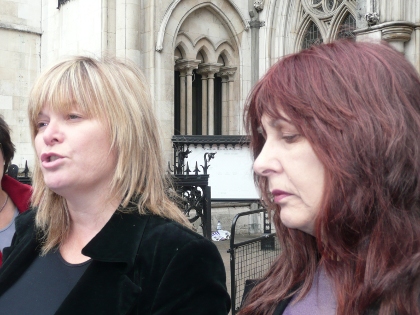Nasa hacker fight heads to Europe


Nasa hacker Gary McKinnon has lost a high-court bid to have his case taken to the new UK Supreme Court, paving the way for his extradition to the US on hacking charges.
The decision, delivered by judges at the Royal Courts of Justice on Friday morning, means McKinnon will now have to take his fight to Europe for a second time if he is to avoid extradition to the US on charges of causing $700,000 (£400,000) damage by hacking into military systems.
McKinnon's legal team now has 14 days to take his appeal to the European Court of Human Rights (ECHR), according to the hacker's solicitor, Karen Todner. The team also plans to appeal again to the home secretary on the grounds that it is inhumane, as McKinnon suffers from Asperger's syndrome, she told ZDNet UK.
Home secretary Alan Johnson has previously said it would be illegal for him to intervene in McKinnon's case.
McKinnon was indicted by the US Department of Justice in 2002. He has admitted breaking into 97 computers belonging to the US Army, US Navy, US Air Force, US Department of Defense and Nasa, but says he was looking for evidence of UFOs, denied the extent of damage that US authorities allege he caused.
If convicted by a US court, McKinnon faces up to 70 years in a maximum security federal prison. However, deputy prime minister Harriet Harman has said the UK will push for any sentence to be carried out in a British prison.
The case has attracted significant attention, partly because of what critics say is a lopsided extradition treaty between the UK and US. The US can demand British suspects be extradited without probable cause, but the UK cannot call for the same from American authorities.
McKinnon has also been diagnosed with Asperger's syndrome, a disorder on the autistic spectrum. On Friday, the high-court judges said McKinnon's Asperger's was not so severe that his human rights would be affected if he was extradited.
"The court has decided that it is not a case that should or could be referred to the Supreme Court," Lord Justice Stanley Burnton said in handing down the decision on Friday. "Permission to apply has been denied." The judgment was made by Burnton and Mr Justice Wilkie.
McKinnon's team first appealed to the ECHR in August last year, but lost. The case now has a better chance with the ECHR, as that court only had the preliminary report on the hacker's Asperger's at the time of the first appeal, Todner said. There is now greater evidence of the Londoner's condition, which means he has "a far stronger case", she said.
McKinnon's mother, Janis Sharp, said outside the court that he was "broken" and "suicidal". Referring to Friday's judgement as "so political, it's perverse", she said: "This extradition treaty is a betrayal of British citizens."
The hacker has gained support in his lengthy legal battle from politicians of all parties. In July, Conservative leader David Cameron said McKinnon should be tried in the UK because he is a "vulnerable young man".
The Conservatives said at their party conference this week that, if they won the upcoming general election, they would rewrite the UK-US extradition treaty to ensure a case such as McKinnon's would never happen again. The treaty was originally drawn up as a counter-terrorism measure.
Celebrities such as Bob Geldof, Sting and his wife Trudie Styler, Chrissie Hynde and David Gilmour have also issued public statements of support for McKinnon.
